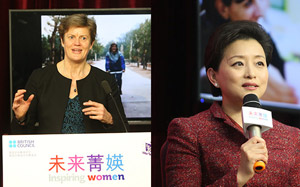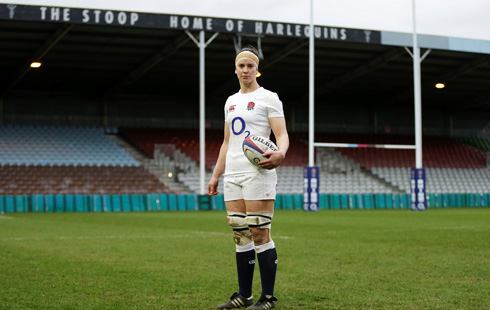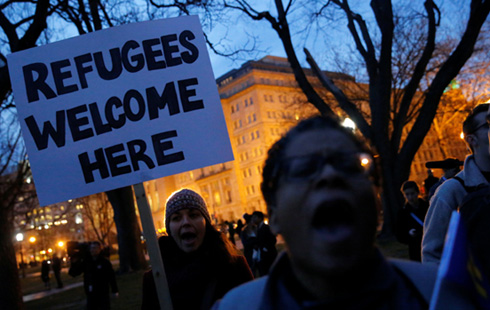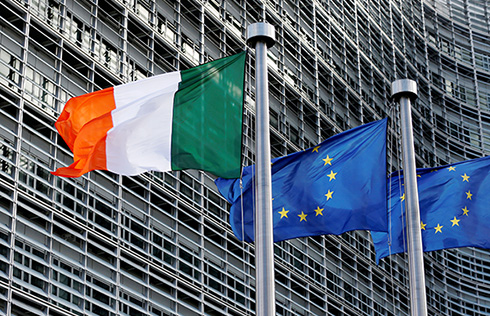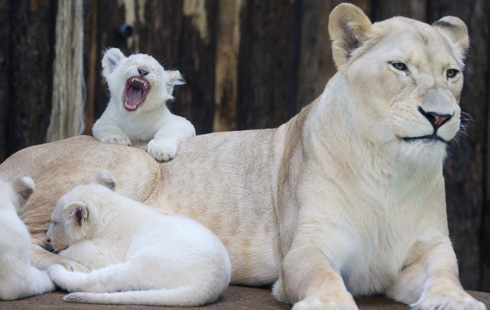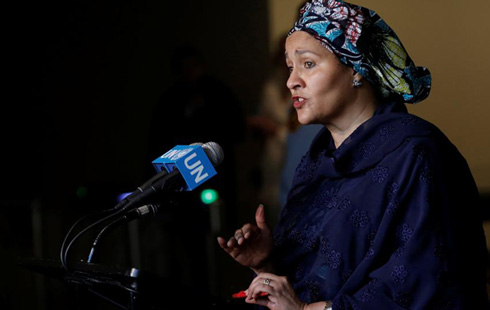US, China groups team up to help special-needs children
While China and the US have many collaborations and exchanges, the philanthropic sector probably is a field less explored.
However, several Asian Americans are pushing for collective action across borders to help children with special needs.
Ancient wisdom has it that it takes a village to raise a child. When it comes to educating and nurturing children with special needs in China and the US, many believe it will take the two largest economies in the world, their governments and countless volunteers to establish a safety net and an accommodative social environment for the vulnerable and underprivileged.
On March 26, a large-scale philanthropic gala titled Shine for Love will be held at Smithwich Theatre in Los Gatos Hills, California. The event aims not only to raise funds for special-needs children in China and the US, but also raise public awareness of their plight, the gala's organizers said at a news conference last week in Fremont.
The 1,000 tickets, priced at $30, $50, $100 and $200 respectively, sold out by Sunday.
"To give to the community is a kind of value that is taught at a young age in the West," said Liang Chao, a board member in the Cupertino Union School District. "I'm excited to see that so many Chinese-American parents are participating in this philanthropy with their children this time. This is really a change."
The US-based non-profit organization Able2Shine, together with Friends of Children with Special Needs (FCSN) in the US, and Silver Lining Missions in China's Guangxi Zhuang autonomous region, organized the fundraiser.
Luo Ping, founder of Able2Shine and director-general for the event, said she initiated the program three months ago. "It has been a lingering dream of mine that I should do something for children with special needs," she said, adding that she felt empathy for the pain and sorrow of children with special needs and their families.
"Several close friends of mine have children with special needs, such as autism, selective mutism and cerebral palsy," she said. "I feel their struggles."
Anna Wang, a key member of FCSN who joined several other families to establish FCSN in 1996 to help her autistic son, said special-needs children and their families require the cooperation of governments, business and civil society that goes beyond partnership or networks.
"About 20 years ago, I wouldn't imagine that we can sit here today to discuss how we people in the US are able to join hands with friends in China to work on the same mission of helping children with special needs," Wang said.
Asian Americans are stereotyped as socially indifferent and care too much about their own well being, said Luo Ping, "We new generation of immigrants need to transform this negative, sometimes miserable image."
Peng Mao, a mom of two young boys and a volunteer for the event, said she gave three to four hours of her time a day on social media networks to promote the fundraiser.
"I bombarded my friends and anyone in the same social group with me at WeChat. I inform, explain and convince any individuals who shows interest in either purchasing the tickets or making donations."
Asian Americans nowadays are willing to give, said Wang Meng, a community advocate for special-needs children. "Philanthropy in many Chinese Americans' eyes now shift from a rich man's club to civil engagement, as long as the cause is noble and would promote positive social change."
Wang, by her leadership of a social media network of 193 members, prompted the sale of 40 tickets and a collective donation of $2,200.
"We need to send the message out that helping children with special needs is ongoing, and any assistance and accommodation are much needed, no matter in the US and China," she said.
Contact the writer at junechang@chinadailyusa.com




